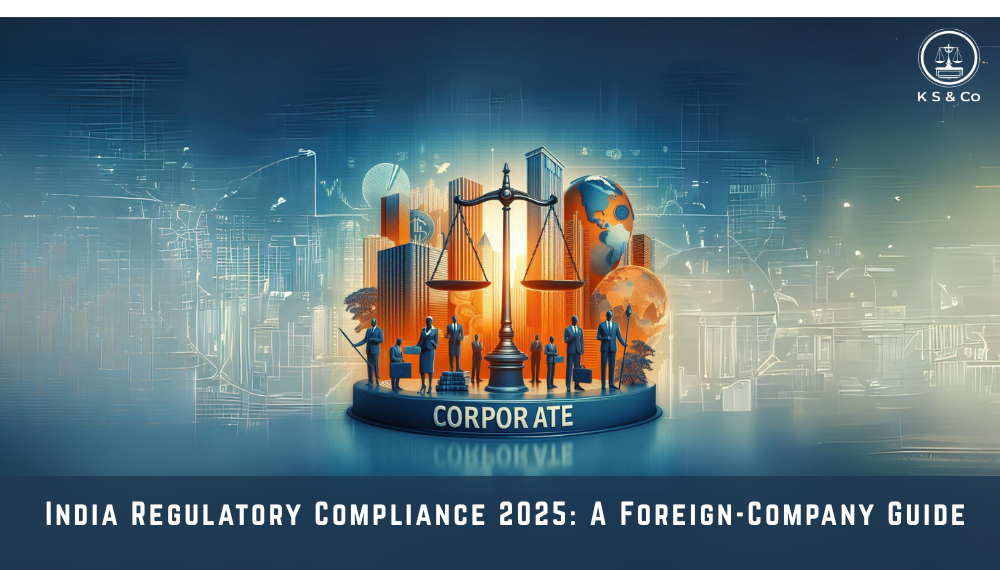On 11th August 2020, the LCIA unveiled the long-awaited update to its Arbitration Rules (LCIA 2020 Rules). The LCIA 2020 Rules will become effective on 1 October 2020 and will apply to arbitrations commenced from that date onwards. They will supersede the 2014 edition of the LCIA Arbitration Rules. The LCIA 2020 Rules introduce number of changes taking in consideration the best practices for virtual arbitration and other amendments of various arbitral institutions for improving efficiency. The arbitration community has stood strong against the challenges posed by the pandemic as can be seen from various guidance notes for conducting virtual hearing along with the best practice. The Indian Courts have also given several arbitration related judgments in the month of August & September 2020. In this newsletter, we have covered some important judgments.
Supreme Court clarifies the period of limitation for execution of Foreign Arbitration Awards in India
The Supreme Court of India in its judgment dated 16th September 2020 in the case of GOI v. Vedanta Ltd. & Ors., SLP (C) No. 7172 of 2020 held that article 137 of the Limitation Act, 1963 is applicable to enforcement of a foreign award, i.e. 3 years from accrual of right. However, a party may file an application under Section 5 for condonation of delay.
In 1994, Indian government signed a production sharing contract with a consortium for Ravva Oil and gas field. In 1999, the government approved production increase and the Consortium demanded increased BDCs (Base Development Cost) but the government rejected it. An arbitration seated in Malaysia followed. Award dated 18th January 2011 was passed in favor of the Vedanta. Government challenged the award in Malaysian courts, which rejected it at two levels with a final appeal pending.
On 14th October 2014, the Claimant moved Delhi HC for the enforcement of the arbitral award. The Delhi HC rejected government opposition to the enforcement of the arbitral award. The government moved to the SC, which rejected the appeal to hold that award was not against public policy and Article 137, Limitation Act is applicable to the enforcement of a foreign award.
Our Comments:
This judgment essentially settles the law regarding applicability of Section 137 in the enforcement of foreign awards. Prior to this, various High Courts of India have taken conflicting stands on the issue of applicable limitation period for filing enforcement of foreign awards in India.
Supreme Court harmonizes two arbitration clauses in the same transaction
The Supreme Court of India in its judgment dated 16th September 2020 in the case of Balasore Alloys Limited v. Medima LLC, SLP (C) NO. 15 of 2020 sought to harmonise which of the two arbitration clauses would apply in the given facts of the case.
Balasore and Medima entered into a supply agreement in 2017. After that 37-purchase orders (PO) were executed regarding the same. Moreover, the parties had entered into an umbrella agreement in 2018. Certain disputes arose between the parties. Balasore applied for a petition under section 11 for the appointment of Arbitrator under the arbitration clause of Purchase Orders. Medima resisted the application on the ground that the tribunal was already constituted by ICC pursuant to the arbitration clause under the Umbrella Agreement. The Apex Court dismissed the appeal on the following grounds:
(i) Since Medima had invoked arbitration clause of Umbrella Agreeement prior to Balasore invoking arbitration clause of purchase orders, invocation of arbitration by Medima would take precedence;
(ii) Scope of arbitration clause of the umbrella agreement is wider than the arbitration clause of the purchase orders and the dispute fell within the ambit of the former.
Our Comments:
This judgment shows the pro arbitration approach of the Indian Courts and clarifies an important issue of two conflicting arbitration clauses in different agreements signed between the parties. The parties should clarify the scope of the arbitration clause in case they decide to keep multiple arbitration clauses. Further, earlier invocation of the arbitration clause, on which the party wants to rely, is advisable.
Gujarat High Court holds that past association of Counsel with Arbitrator is a ground for termination of the mandate of Arbitrator
The Gujarat High Court in its judgment dated 8th September 2020 in the case of Ahuja Classes v. Bothra Classes, C/IAAP/31/2020 terminated the mandate of the arbitrator on the ground that there was past association of counsel with the Arbitrator.
The petition was filed for appointment of new arbitration and terminating the mandate of the current arbitrator. The arbitrator in this matter was an advocate. In his declaration under section 12, the arbitrator stated that he ‘had’ worked with the claimant counsel in some cases but not with the parties in the arbitration. The Court while referring to Item 3 of the VII Schedule of the Arbitration & Conciliation Act, 1996 held that a professional association between counsel and arbitrator is sufficient to terminate the mandate of the arbitrator.
Our Comments:
There are certain infirmities with this judgment. Item 3 of the Schedule VII talks about the present relationship whereas the disclosure related to past association. It is common that lawyers have some past association with other lawyers who may become arbitrator and past association should not be a ground for termination of the mandate of the arbitrator.
Delhi High Court appoints a Sole Arbitrator when the Parties fail to provide an odd number of Arbitrators in Arbitration Agreement
The Delhi HC in its judgement dated 13th August 2020 in the case of JMC Projects (India) Limited v. South Delhi Municipal Corporation, Arb. P. 632/2017 held that the Court can appoint the arbitrator when parties fail to provide an odd number of arbitrators in the arbitration agreement or the arbitration clause.
The Court went on to decide whether clause 46 of Special Conditions of Contract was an arbitration clause or not. On reaching a conclusion that clause 46 is an arbitration clause, the Court relied on M.M.T.C. Limited v. Sterlite Industries (India) Limited, where the Court held that validity of an Arbitration Agreement does not depend on the number of Arbitrators and the Arbitration Agreement specifying an even number of Arbitrators cannot be a ground to render the Agreement invalid under the 1996 Act. Thus, Court can appoint a Sole Arbitrator where the Parties fail to provide an odd number of Arbitrators.
Our Comments:
This court was correct in holding that the validity of arbitration agreement doesn’t depend on the number of arbitrators. This judgment also impliedly recognizes that parties cannot choose even number of arbitrators, i.e. Section 10(1) is a mandatory provision of the Arbitration & Conciliation Act, 1996.
Delhi high Court explains the prerequisites for passing an Order u/s 9 of Arbitration Act
The Delhi HC in the judgement dated 14th August, 2020 in the case of Avantha Holdings Limited v. Vistra ITCL India Limited, OMP(I)(COMM)177/2020 dealt with the matter wherein an application under §9 of the Arbitration & Conciliation Act, 1996 was filed due to the invocation of pledge and the consequent sale of the debentures by the debenture trustee on the ground that plaintiff committed numerous defaults. The shares of pledged company CGP & BILT were sold in the open market which led to the dispute and plaintiff seeking these three reliefs mainly: –
1. Transfer of the pledged CGP shares back into its Demat account,
2. Injunction against the sale of BILT shares,
3. Injunction against taking any steps against Avantha under the debenture deeds and pledge documents.
The court held that none of the prayers, in this petition can be granted under §9 of Arbitration Act. The relief of transferring the pledged CGP shares couldn’t be issued because the pledge had already been invoked & a majority of the shares had already been sold in the open market. For the injunction against sale of BILT shares, it held that it would amount to a ban on Vistra, exercising the rights, conferred and vested to them by the Debenture Trust Deeds. It further held that the prerequisites for passing an order under §9 of Arbitration Act, the courts have to be made satisfied that:
(i) The applicant, before it, manifestly intends to initiate arbitral proceedings,
(ii) The criteria for grant of interim injunction, which apply to Order 39 of the CPC, stands satisfied, and
(iii) Circumstances also exist which renders the requirement of ordering interim measures an emergent necessity, which cannot await proceeding before the arbitrator, or arbitral tribunal under §17 of Arbitration Act.
Our Comments:
This judgment reemphasizes that the prerequisites for obtaining interim reliefs from the court. The judgment balances the jurisdiction of the arbitral tribunal to grant interim measures under Section 17 and the scope of Section 9 of the Arbitration & Conciliation Act, 1996.
SC adjudicates the issue whether allegations of fraud would vitiate the arbitration agreement, and what would be the measure of damages in that case:
The Supreme Court of India in its judgment dated 19th August 2020 in the case of Avitel Post Studioz Ltd. & Ors. V HSBC PI Holdings (Mauritius) Ltd., Civil Appeal 5145 of 2016 held that fraud to make a dispute non-arbitrable must be of a very serious nature.
HSBC found out that the purported BBC contract which Avitel group talked of, was non-existent and it was set up just to induce HSBC into investing the money in the shares of Avitel India. This lead to the initiation of dispute between them, during the pendency of the arbitral proceedings, HSBC filed a Petition under §9 of the Arbitration Act before the Bombay HC seeking a direction to the Avitel India to deposit security amount to the extent of HSBC’s claim. The Ld. Single Judge of Bombay HC directed Avitel group to deposit any shortfall in its account with the Corporation Bank so as to maintain a balance of USD 60 million during pendency of the arbitration proceedings. In an intra court appeal, the Ld. Division Bench modified the order in appeal and directed that Avitel India would maintain USD 30 million, instead of USD 60 million, in its account during pendency of the arbitration proceedings. Both HSBC as well as Avitel India challenged the order of the Ld. Division Bench dated 31.07.2014 before the Hon’ble Supreme Court of India.
On the issue of arbitrability of the dispute due to allegations of fraud by HSBC, the Ld. Division Bench held that such allegations were primarily in the context of “fraud” and “Misrepresentation” as defined under §17 &18 of the Contract Act thus establishing a civil profile of the dispute & held that the disputes were arbitrable. To which the Hon’ble SC also agreed to & held while relying with the case of Rashid Raza v. Sadaf Akhtar wherein the that “serious allegation of fraud” was defined and said that it arise only
(i) If it can be clearly concluded that the arbitration clause or agreement itself does not exist
(ii) Cases in which allegations are made against the State or its instrumentalities of arbitrary, fraudulent, or malafide conduct, thus necessitating the hearing of the case by a writ court. Thus, the present case was arbitrable.
Our Comments:
This judgment lends clarity to courts and arbitral tribunals, which should aid in carving out unrealistic submissions to opt out of the arbitration agreements. The two grounds forming exceptions to arbitrability of matters involving serious allegations of fraud are clearly identifiable and easily discernable and will save the time of court and tribunals in future cases.






